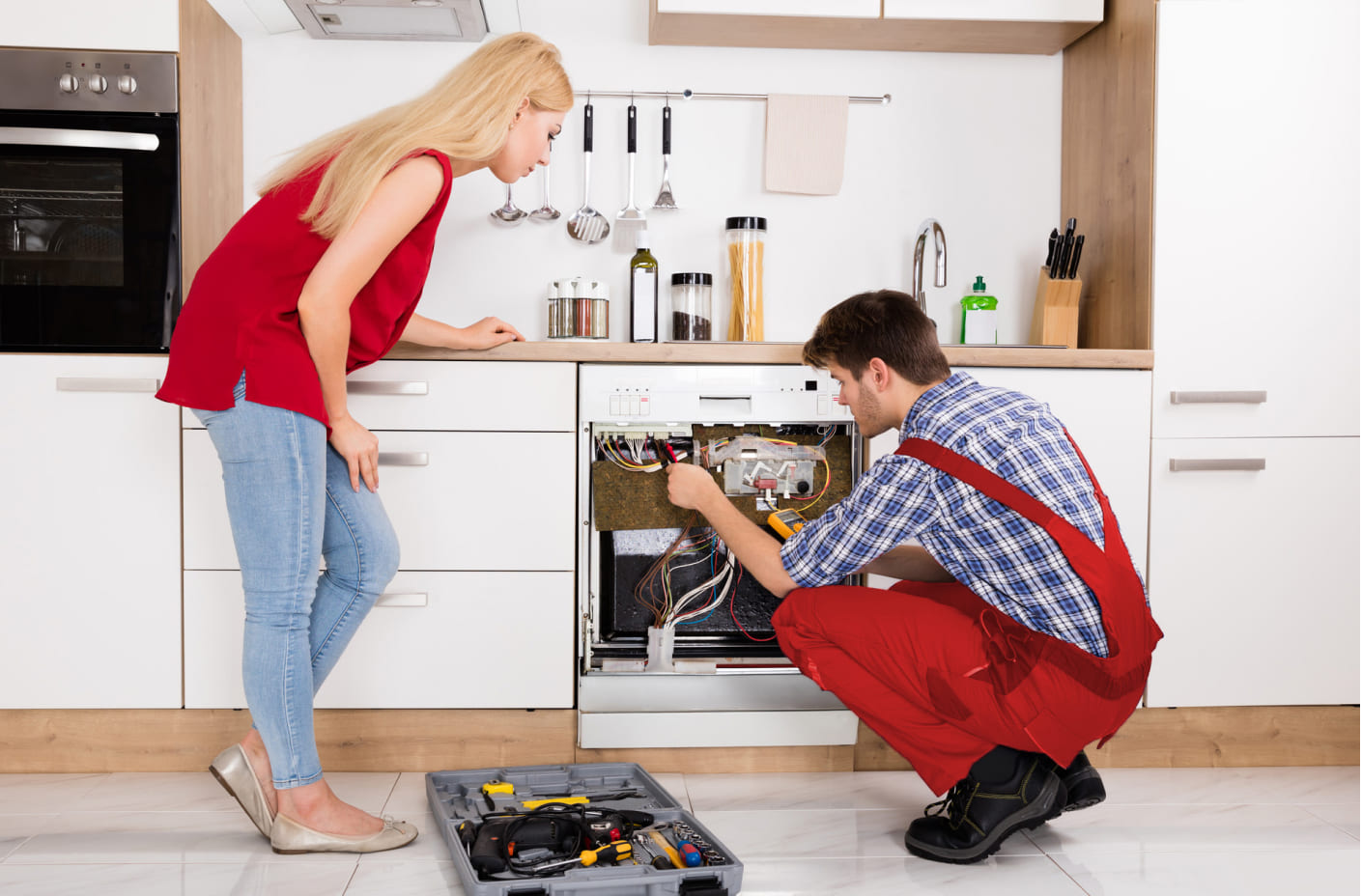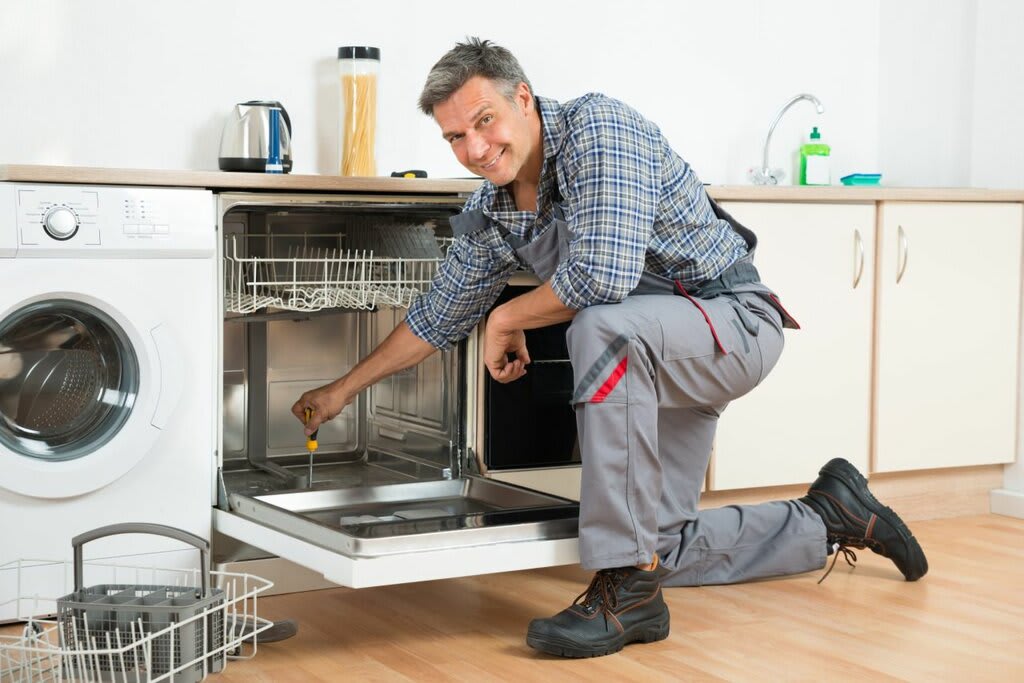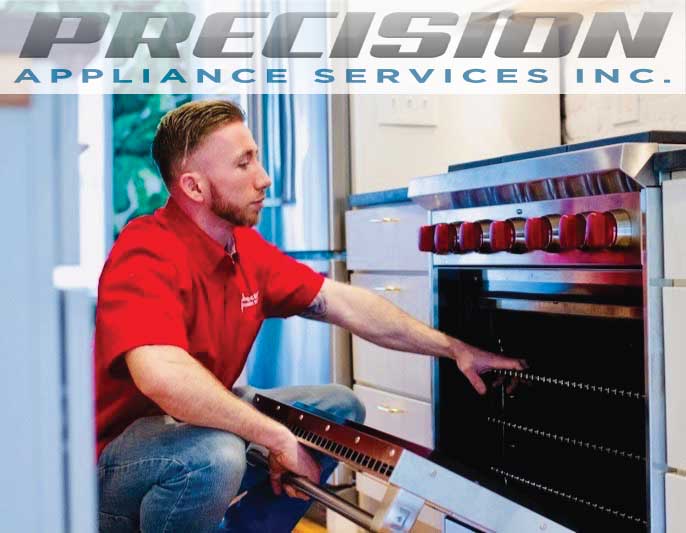Steps to Fix Drainage Problems – Dependable Refrigeration & Appliance Repair Service Washing Machine Repair
Steps to Fix Drainage Problems – Dependable Refrigeration & Appliance Repair Service Washing Machine Repair
Blog Article
The Ultimate Guide to Understanding Appliance Fixing at Home
When your refrigerator stops cooling down or your stove declines to warmth, it can feel frustrating. Comprehending appliance repair work in your home can save you money and time. You'll learn to acknowledge signs and symptoms, make use of important tools, and comply with a methodical troubleshooting process. Before you start, there are essential security precautions you require to take into account. What are the most common troubles, and exactly how can you repair them? Allow's discover the fundamentals.
Typical Appliance Problems and Their Symptoms
When your appliances start acting up, it's vital to acknowledge the indicators at an early stage. Ignoring them can cause larger problems and costly repair services. As an example, if your fridge isn't cooling correctly, you might notice warm areas or condensation developing. This might show a falling short compressor or an obstructed vent.Your dishwasher might show issues via unclean recipes or unusual noises during cycles. If you hear grinding or clanking, it's time to investigate.A cleaning machine that won't spin or drain can leave you with soaked laundry, recommending a blocked drain or a malfunctioning pump.Lastly, if your stove's temperature seems off or it takes permanently to pre-heat, you might be dealing with a malfunctioning thermostat. By remaining sharp to these symptoms, you can deal with concerns before they intensify right into significant repair services.
Vital Devices for Home Appliance Repair Work
When you're dealing with appliance fixings in your home, having the right tools is necessary. Basic hand devices like screwdrivers and pliers will certainly assist you dismantle and deal with various home appliances, while electric testing devices assure you're working securely with wiring. Allow's look at what you require to begin on your repair journey.
Basic Hand Devices
Having the right devices is necessary for effective home appliance repair work in the house. Begin with a dependable screwdriver collection, consisting of both flathead and Phillips kinds, as screws prevail in home appliance setting up. Pliers are likewise essential; they aid with gripping, turning, and cutting wires or tiny components. A set of needle-nose pliers can get to tight places quickly. You'll need a good flexible wrench for tightening or loosening nuts and bolts. An utility blade comes in handy for puncturing packaging or insulation. Finally, don't fail to remember a strong workbench or surface area to safely organize your tools and components. With these basic hand devices, you'll be well-prepared to tackle most appliance repair work that come your way.
Electrical Testing Gadgets
Along with standard hand tools, electric testing devices play a necessary role in device fixing. These devices assist you diagnose electrical issues and warranty appliances operate safely. A multimeter is important; it gauges voltage, current, and resistance, allowing you to pinpoint issues quickly. A non-contact voltage tester is an additional must-have, allowing you find real-time wires without making straight contact, boosting your safety. Secure meters are terrific for determining existing circulation in cables without detaching them, conserving you time and effort. In addition, circuit testers can rapidly check if electrical outlets are working properly. By utilizing these tools, you'll streamline your troubleshooting procedure and boost your repair work skills, making device upkeep a lot simpler.
Step-by-Step Guide to Diagnosing Appliance Issues
When your device acts up, it can be irritating, yet diagnosing the problem does not need to be overwhelming. You'll learn to recognize typical problems and use reliable troubleshooting strategies. Let's walk via the steps to get your home appliance back in functioning order.
Usual Appliance Issues

Repairing Strategies Explained

Repairing Significant Kitchen Appliances: A Closer Look
Have you ever wondered exactly how to take on common problems with your kitchen home appliances? Fixing significant cooking area appliances like fridges, stoves, and dish washers can be simpler than you assume. Beginning by recognizing the issue-- whether it's a refrigerator not cooling or an oven that won't heat. Frequently, a basic reset or inspecting the source of power can resolve the issue.For refrigerators, tidy the condenser coils and examine the door seals. If your oven's not heating, evaluate the home heating element and thermostat. Dishwashers could just need a tidy filter or a reset to get them back in action. Constantly disconnect the home appliance before diving right into repair work to ensure your safety.Don' t fail to remember to seek advice from the user manual for specific fixing ideas connected to your design. With a little bit of patience and the right devices, you can with confidence deal with home appliance fixings and save cash at the same time!

Repairing Laundry Appliances: Tips and Techniques
When your washing home appliances begin acting up, it can feel overwhelming, but troubleshooting them doesn't have to be a hassle. Begin by examining the power supply. Validate the home appliance is connected in and the outlet is functioning. Next off, evaluate the door or lid switch; a malfunctioning switch can protect against the machine from operating.For washers, if it's not rotating, examine for out of balance loads. Redistributing the clothing might address the concern. If your clothes dryer isn't heating, tidy the lint filter and check the air vent for blockages.Listen for uncommon sounds; they can show a problem. If your home appliance is dripping, inspect the pipes for cracks or loosened connections. Paper any kind of mistake codes presented on digital screens, as they can lead you in determining the concern. Seek advice from the individual guidebook for details troubleshooting tips associated to your model.
Safety And Security Precautions to Take During Repairs
Before you start any kind of device fixings, it's necessary to prioritize safety and security to stop mishaps or injuries. First, disconnect the home appliance or transform off the circuit breaker to ensure no power reaches it while you work. Usage insulated tools to minimize the threat of electric shock. Wear security goggles and gloves to shield on your own from sharp edges or debris (Lg Dryer repair near me Dependable Refrigeration & Appliance Repair Service).Make specific your work area is tidy and well-lit, so you can see what you're doing. Keep youngsters and pets away from the location to prevent interruptions and prospective threats. If you're taking care of gas devices, be added careful; check for leakages prior to proceeding.Take your time, and do not rush through repairs. If you feel unpredictable regarding any kind of step, it's much better to stop and study than to presume. Following these preventative measures will aid develop a much safer atmosphere for your DIY appliance repair work job
When to Call an Expert for Aid
Just how do you know if it's time to contact a specialist for device repairs? If you have actually tried standard troubleshooting without success, it's a clear indicator. If your appliance still will not start or shows uncommon noises after resetting it, don't hesitate to look for expert help.When you see leaks, smoke, or burning scents, prioritize security and call a pro right away. These issues can bring about even more substantial damages or posture threats to your home.Also, if your home appliance is under service warranty, getting in touch with a specialist is often the most effective course. They can assure that repairs will not invalidate your service warranty, conserving you money in the long run.Finally, if you're uncertain or uneasy with intricate repair services, it's smart to leave it to the specialists. check here Bear in mind, tackling complicated concerns without the right proficiency can lead to costly mistakes. Count on an expert when in question!
Often Asked Questions
How Can I Avoid Device Issues in the Future?
To stop home appliance troubles in the future, you must execute regular upkeep, look for wear and tear, clean filters, and avoid overloading. Remaining aggressive will assist extend their lifespan and maintain them running smoothly.
What Are one of the most Typical DIY Appliance Repair Mistakes?
You could overlook safety precautions, skip troubleshooting steps, or make use of incorrect tools when attempting DIY device repair services. Rushing the procedure or neglecting manufacturer standards can cause more significant problems and costly mistakes. Stay individual and educated!
Just how Do I Know if a Part Demands Substitute?
You can tell if a part requires replacement by looking for uncommon noises, leakages, or inconsistent efficiency. If the home appliance battles to run correctly or shows visible damages, it's most likely time for a substitute.
Can I Utilize Generic Components for Home Appliance Repairs?
Yes, you can make use of common parts for home appliance repair work, however ascertain they're compatible - Dryer repair Oro Valley Dependable Refrigeration & Appliance Repair Service. Generic components could save you money, but they might impact performance or long life, so evaluate your choices meticulously before making a choice
What Warranties Cover Device Repairs?
Most device guarantees cover repairs for manufacturing issues, however they typically omit damage from abuse. Examine your warranty terms meticulously, as some may call for utilizing qualified technicians and original parts for protection to stay valid.
Report this page